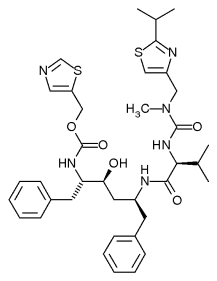WASHINGTON -- The government on Wednesday refused to override patents on Abbott Laboratories' AIDS drug Norvir, effectively allowing a quintupling of the price to stand despite consumer groups' accusations of price gouging.
Patient groups and some members of Congress had pushed the National Institutes of Health to take the unprecedented action, arguing it was warranted under a special law because Norvir's development was partially funded by taxpayer dollars.
Citing the $3.5 million NIH grant that helped lead to Norvir's discovery, the consumer group Essential Inventions petitioned the government to grant licenses for other companies to make the medicine, too. Their aim: driving the drug's price down.
But the NIH decided that such an extraordinary step could have overly broad effects on the pharmaceutical market, and would exceed that law's intent.
"The issue of drug pricing has global implications and, thus, is appropriately left for Congress to address legislatively," concluded Dr. Elias Zerhouni, NIH director.
North Chicago-based Abbott raised the price of the 8-year-old Norvir to $8.57 a day from $1.71 late last year.
Consumer advocates decried that the increased price applied only to the United States, leaving Norvir markedly cheaper in other countries. They also called it anti-competitive, because it only applied when Norvir is added to other companies' AIDS medicines, not Abbott's own Kaletra, a medicine with Norvir built into the pill.
The 24-year-old Bayh-Dole Act gives the NIH the right to claim patents of inventions partly funded by the government -- if companies don't bring the innovations to market in ways that "achieve practical application."
NIH concluded that Norvir meets the main intent of that law. The drug is widely sold and, thus, offers the agency no health reason to intervene, said Bonny Harbinger, deputy director of NIH's Office of Technology Transfer.
Abbott welcomed the decision. The company maintains the higher price is necessary to counter falling sales as Norvir's use has shifted from a primary agent to a low-dose booster. Sales fell to $100 million last year from a high of $250 million in 1998. Norvir sales have totaled more than $1 billion since its introduction.
The company also says the NIH grant represented a tiny portion of the roughly $300 million it ultimately spent developing Norvir, expenses it needs to recoup to invest in new research.
"This is good news for patients who will continue to benefit from both current and future innovations that result from the advent of the Bayh-Dole Act," said Melissa Brotz, Abbott spokeswoman.
The price increase came amid already vigorous debate about why Americans pay much more for prescription drugs than do patients in such countries as Canada and Britain.
AP
Copyright The Chicago Sun-Times, Inc.
Provided by ProQuest Information and Learning Company. All rights Reserved.



